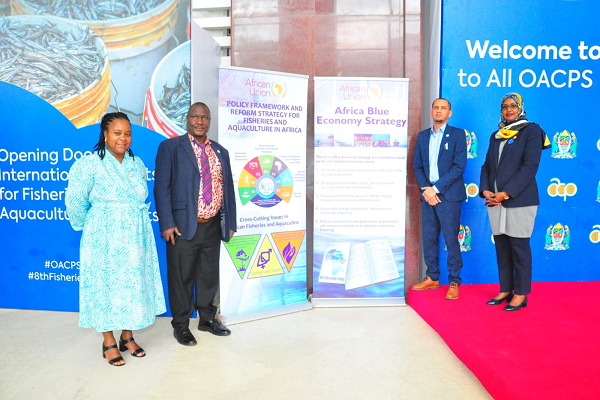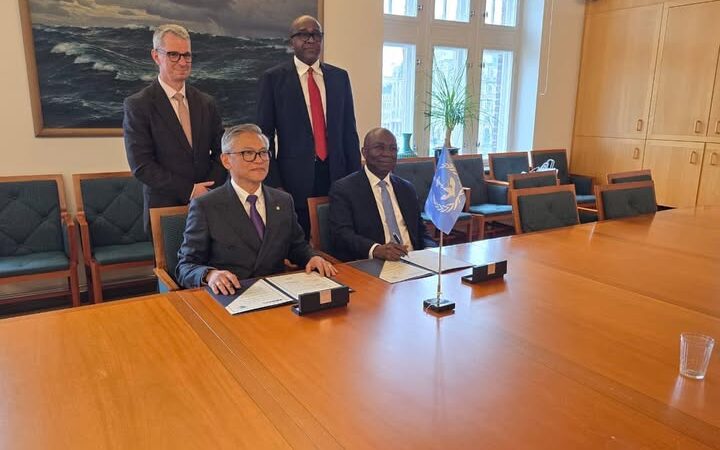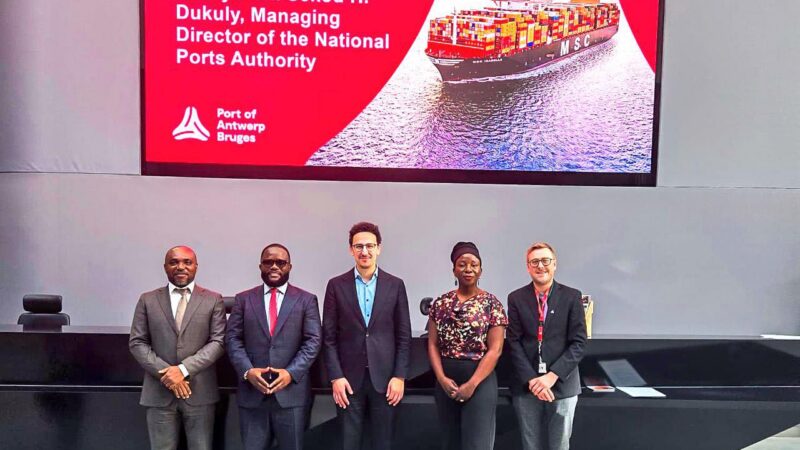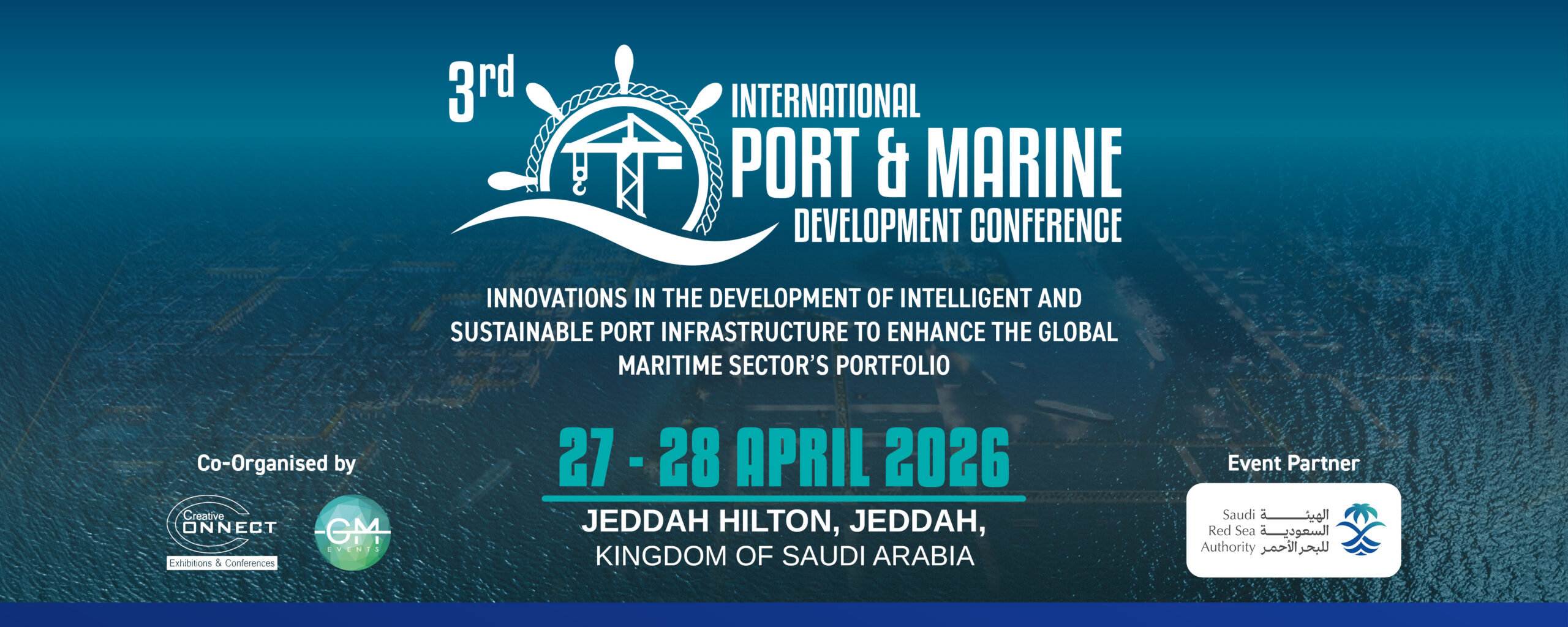8th Meeting of OACPS Ministers Responsible for Oceans, Inland Waters, and Fisheries Kicks Off in Tanzania
Today marks the start of the 8th Meeting of the Organisation of African, Caribbean and Pacific States (OACPS) Ministers Responsible for Oceans, Inland Waters, and Fisheries, taking place from 9-11 September 2024 in the United Republic of Tanzania. The event brings together policy leaders, experts, stakeholders, and key organizations, including the African Union-InterAfrican Bureau for Animal Resources (AU-IBAR), to address the urgent challenges facing marine ecosystems and fisheries across OACPS member states. AU-IBAR’s participation highlights its continued commitment to promoting sustainable fisheries and aquaculture practices across Africa, as well as its collaboration with OACPS countries in advancing marine conservation and governance.
This year’s meeting centers around the theme, “Accelerating Action for Sustainable and Resilient Oceans, Fisheries, and Aquaculture in OACPS Countries and Regions.” Attendees aim to explore sustainable practices and frameworks that can protect oceans and inland waters while promoting economic resilience in fisheries and aquaculture sectors.
The formal opening ceremony is scheduled for Wednesday, 11 September 2024, where Her Excellency Dr. Samia Suluhu Hassan, President of the United Republic of Tanzania, will be the Guest of Honour. The event underscores Tanzania’s strategic role as a coastal nation and a leader in marine resource governance.
The 8th Meeting of the OACPS aims to drive sustainable fisheries management by sharing best practices, providing policy direction, and strengthening partnerships with development partners and international organizations.
Event Highlights
The official program includes several critical sessions. The Senior Officials Meeting, being held on 9-10 September 2024, focuses on the technical groundwork. On 10 September, the Report of the Senior Officials responsible for Oceans, Inland Waters, and Fisheries will be adopted, laying the foundation for the high-level discussions to follow. During the opening day of the Senior Officials Meeting, the Director of AU-IBAR made a presentation on the Policy Framework and Reform Strategy for Fisheries and Aquaculture in Africa (PFRS) and the African Fisheries Reform Mechanism (AFRM). The session highlighted AU-IBAR’s support to African Union Member States (AU MSs) and Regional Economic Communities (RECs) in aligning policies and coordinating efforts across Africa’s fisheries and aquaculture sectors.
A key focus of this presentation was on *strengthening the enabling environment* to achieve sustainable, inclusive, and well-governed fisheries. The discussion delved into ongoing initiatives, drawing lessons from national and regional practices to inform recommendations for scaling up efforts in fisheries governance – a key mandate of the FishGov 2 project funded by the European Union.
On 11 September, during the Ministerial Meeting, AU-IBAR’s Director, Huyam Salih is set to represent Regional Organizations in Session II: “Enhancing Capacity for Sustainable Ocean Governance and Inclusive Marine Resources Management. This session will address the importance of strengthening institutional capacities and enhancing cross-sectoral governance frameworks to ensure resilient marine ecosystems.
Context and Challenges
The oceans and their ecosystems are vital for human well-being, providing critical resources like food, livelihoods, and climate regulation. However, these ecosystems face severe threats from climate change, pollution, overfishing, and habitat destruction. Addressing these threats requires urgent, coordinated actions from member states to safeguard marine environments and resources for future generations.
OACPS member states are committed to fostering sustainable fisheries and aquaculture sectors. Guided by the 2019 revision of the Georgetown Agreement and agreements like the Samoa Agreement, these nations aim to eradicate poverty and achieve sustainable development through strategic partnerships at national, regional, and multilateral levels.
The meeting aligns with the OACPS Strategic Plan of Action for Fisheries and Aquaculture – 2030 (SPOA) and its Prioritized Agenda for Action (PAA). These frameworks outline the key strategic priorities for sustainable fisheries and aquaculture development, aligning with global commitments such as Sustainable Development Goal 14 (SDG14) and the BBNJ Agreement. These agreements focus on the sustainable use and conservation of marine resources while addressing climate change and biodiversity loss.
Conclusion
There has never been a more important time to speed up sustainable ocean, fisheries, and aquaculture projects than at the 8th Meeting of OACPS Ministers. The member nations of the OACPS are laying the groundwork for a major shift in marine resource management by reiterating their pledges, exchanging successful strategies, and enhancing collaborations. In the long run, these initiatives will help marine ecosystems around the world become more self-sufficient and prosperous, which is great news for environmental protection and long-term sustainability. In addition to resolving pressing issues, the meeting’s deliberations will provide the groundwork for sustainable marine and inland waterways management for the benefit of generations to come.
Source : AU-IBAR






